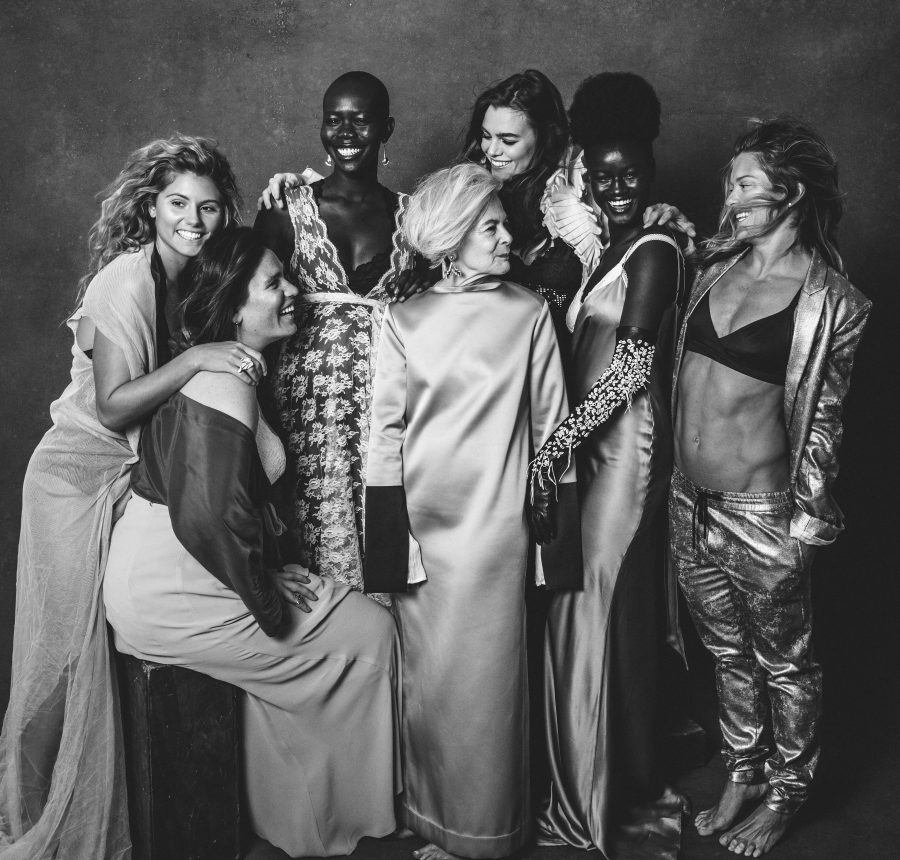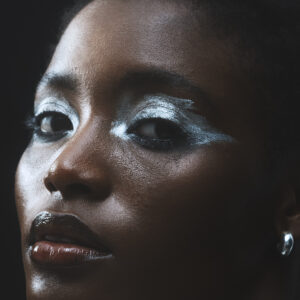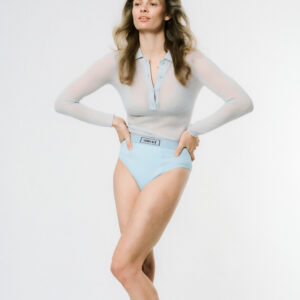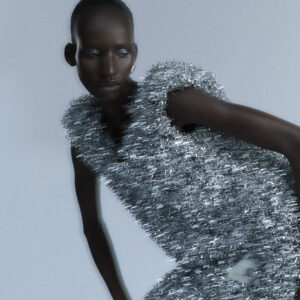Charli Howard / All Woman Project
Interview 22.02.17
Photography Heather Hazaan Fashion Calvy Click Words Katy Lassen
Charli Howard is a model and co-founder of the All Woman Project, a foundation she set up with fellow model Clementine Desseaux, to promote diversity and body positivity in women and girls. Their campaign of beautiful styled images showcases a broad range of women, in age, ethnicity and size and is totally photo-shop free. We talk to Charli about her experiences as a model and what inspired the All Woman Project.
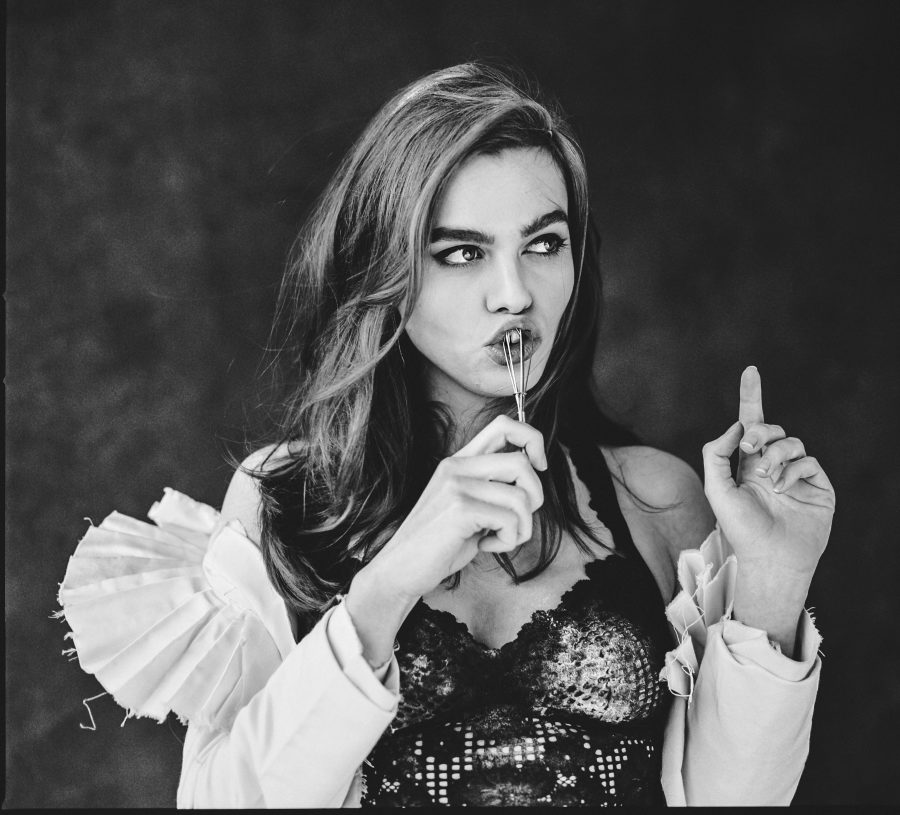
Charli Howard
Tell me more about the All Woman Project and how you came together with Clementine to found it.
We met via our agency – Clem is on the plus-size board, whilst I was on the main board (now I’m on both the main and plus board because of my measurements). We discussed how we never saw models of our sizes star together in the same campaigns, and questioned why we were segregated. So we decided we’d create our own campaign and do something about it!
What has been the response from the fashion industry to the project?
It’s been so positive – so much more positive than we ever expected. It’s great because the industry is filled with the people we wanted to notice it the most.
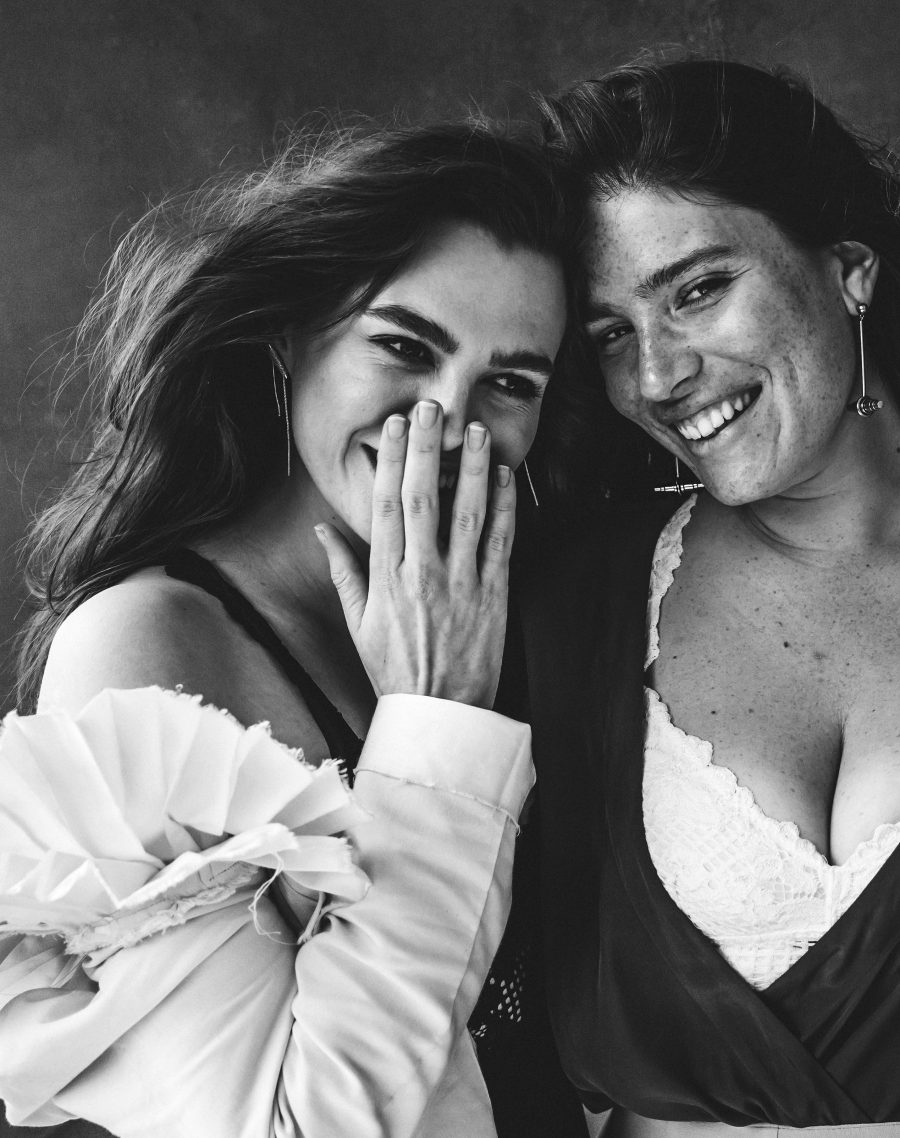
I find that fashion has a tendency to report body positive movements, agree more needs to be done to improve diversity but then nothing else happens. A feature about AWP is just as likely to be near a story about getting in shape as it is to be sitting next to another shoot with a skinny white girl in it. What do you think needs to change and do you believe it will?
The term ‘body positive’ is definitely a buzz word right now and a trend. People know it causes a stir in the media so they’ll use a plus-size model to sell a product, when in reality it should just be the norm. There are so many beautiful girls being overlooked because of their size, and it’s so unfair. If I’d had role models like Ashley Graham growing up, I swear I wouldn’t have felt as insecure as I did. All we want to do with the All Woman Project is to show that girls of ALL sizes can model together, and look beautiful doing so. It’s not a difficult concept, yet it’s always made out to be.
There may be enthusiasm to shoot bigger girls in high end fashion (we want to!) but sample sizes are a big problem when it comes to sourcing clothes. The sizes of samples range from tiny to small and there is very little a stylist or editor can do. Do you think there is an appetite for change from designers and fashion PRs? In the end these are the people who need to be convinced. Isn’t it up to everyone to make that change? It starts from the core and needs to work it’s way out.
Well I studied pattern-cutting at the London College of Fashion and I distinctly remember having ONE class (for the entirety of my degree) about how to cut bigger sizes. That was it. The sample size for us was a UK 10, whereas I know at other fashion colleges, they are often smaller. Pattern-cutting is so time consuming that you just want to cut it at the size you’re given. But yes, I agree it starts from the core of the industry. Designers can hire girls of different sizes; agencies can hire bigger girls. Being bigger does not make you any less worthy of fashion, so we need to disassociate the term ‘plus’ with that.
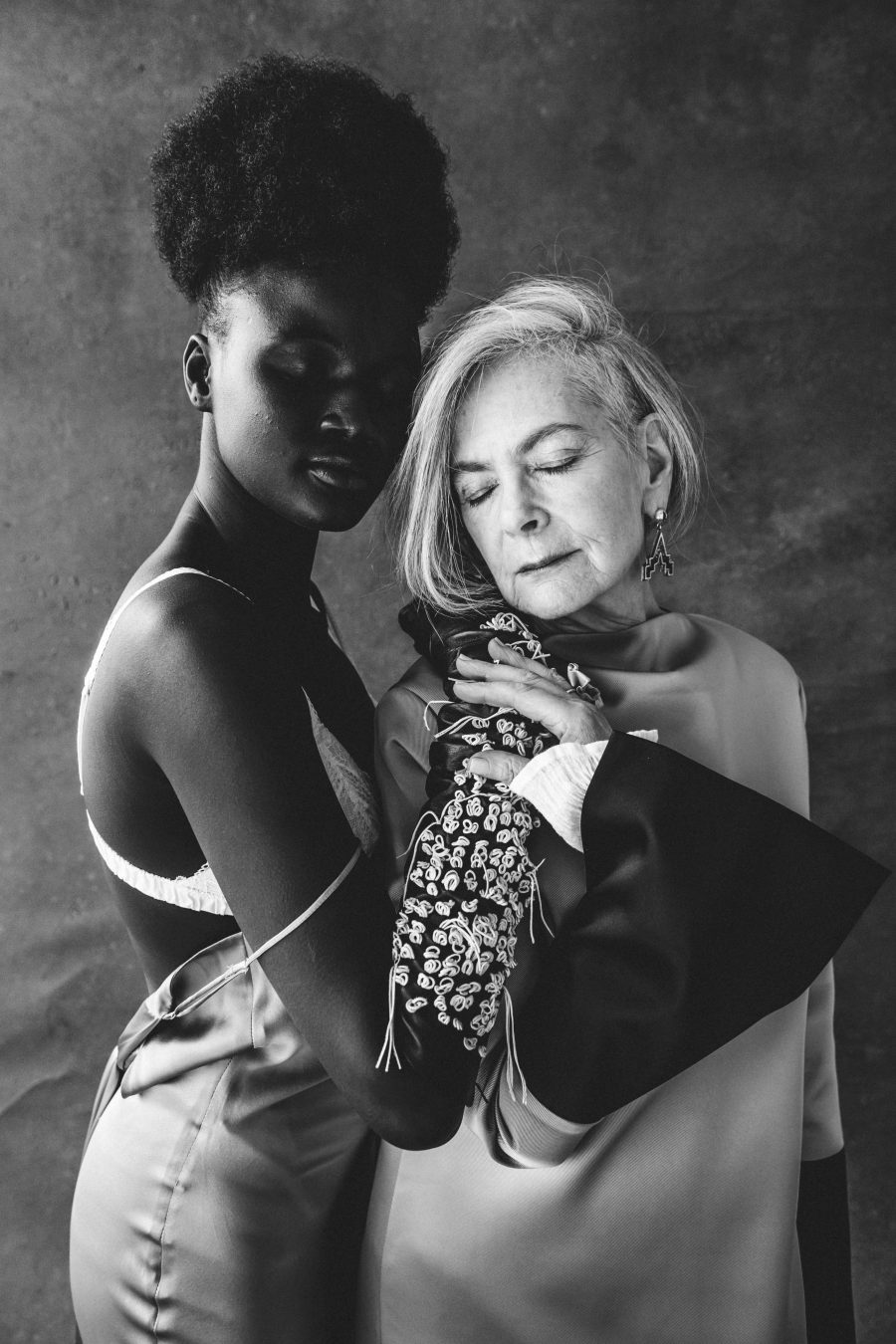
What do you think of the term plus size?
Well as someone who will never be plus-size, I can’t really comment on what I think about it. I’ve never been into a shop and found something that doesn’t fit, for example, and I can only assume that would be a struggle emotionally. I don’t like the categorisation of women in general, though. I don’t like the term ‘straight-sized’, because straight makes it sound like the skinnier girls are the ‘normal’ ones, like we assume with gender. We’re all normal.
I did a casting recently with ‘plus size’ models and none of the girls who turned up were big. They were mainly between a 10 and 14, with fantastic bodies, but they all told me that they usually have to wear padding to get the plus size jobs. Some had even come in pants to make their hips and bum bigger. It seems crazy to me that models who are the same size as the average women are not represented in fashion, only very thin or fat – neither of which is a particularly good role model. What do you think?
Yes, padding is a funny one. Even I’ve been made to wear it when some clients think I’m too small. I really don’t understand why you’re made to fit one category or the other to be considered a model. So many girls are told to gain weight to become plus-size models, and that’s not healthy, either. It just seems fashion is based on extremes and caricatures of the female body, when it doesn’t need to be. I just do my own thing now and am about a UK size 8-10. I want to represent the girls who don’t fit either of those categories.
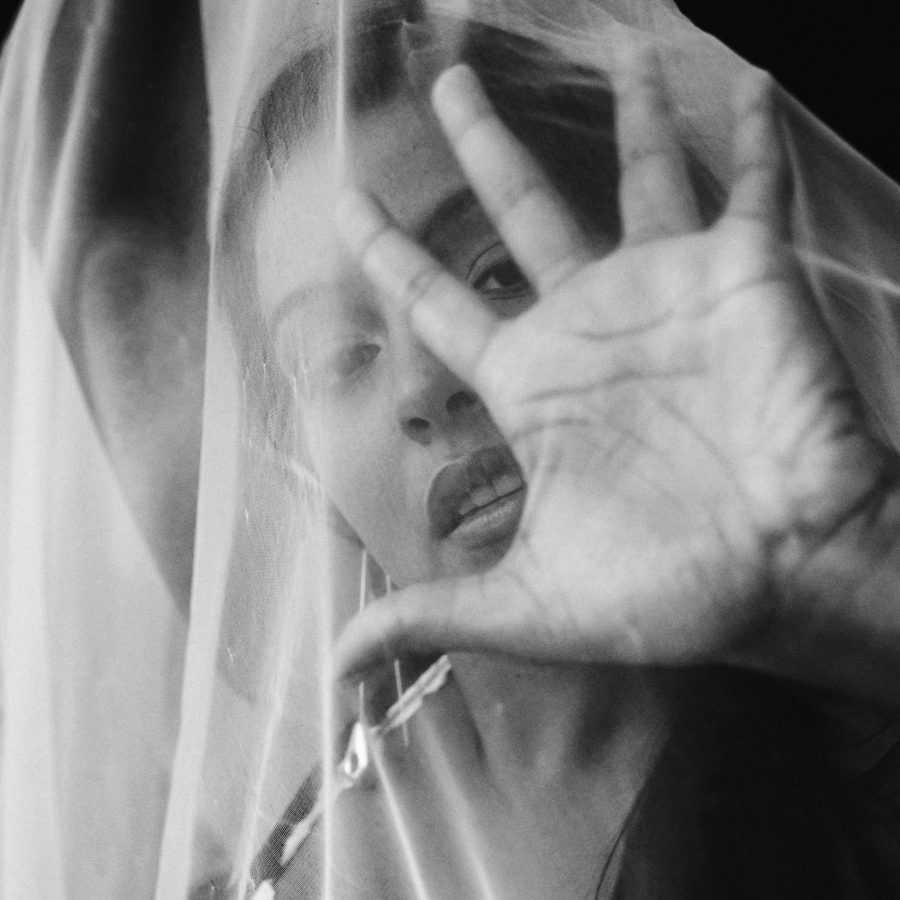
All we want to do with the All Woman Project is to show that girls of ALL sizes can model together, and look beautiful doing so. It’s not a difficult concept, yet it’s always made out to be
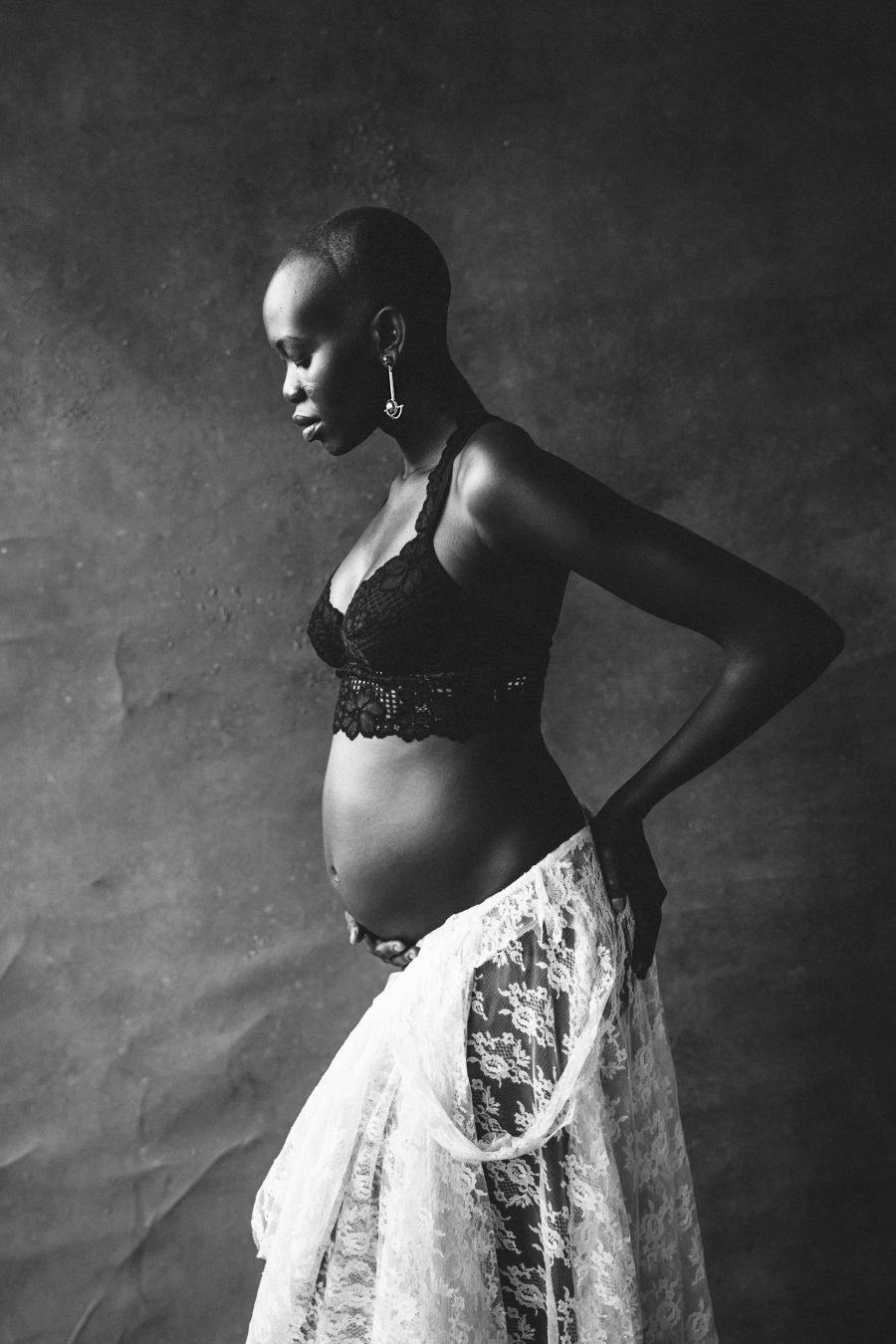
You famously spoke out in an open letter after your agency dropped you for being out of shape. Many models stay silent about poor treatment for fear of losing their careers, where did you find the courage to say how you felt? Were you worried about what the response would be?
I get why so many girls don’t speak up. So many of us feel that modelling is a gateway to a better life; full of fame, riches and popularity. So when someone tells you that if you lose weight, you’ll achieve all those things, why wouldn’t you do as you’re told? The irony is, of course, so few girls actually achieve any of those things, but they are so desperate to be models that they’ll do whatever they’re asked of without questioning it.
As I wrote that status at the time, I didn’t care what the response would be. I felt done with the modelling industry. In fact, that night, I got calls and messages from so many people saying I should take it down because it would destroy my career. But my gut-feeling was that I knew I was right.
The response seems to have been mostly positive, did that surprise you?
Yes it did. It changed my life for the better.
Regardless of its flaws and of your negative experiences in fashion you are obviously positive and passionate about the industry. What do you like/love about the industry and how do you see your future within it?
I do love the industry. I’ve met so many creative people who are passionate about their craft, and that’s so rare to find nowadays. But I’m here to mold my own path in the industry, and that’s not by being ‘thin’. A model even told me the other day that the only way you can make it is if you stay as thin as possible. I just don’t think that’s the case anymore.
www.allwomanproject.com
